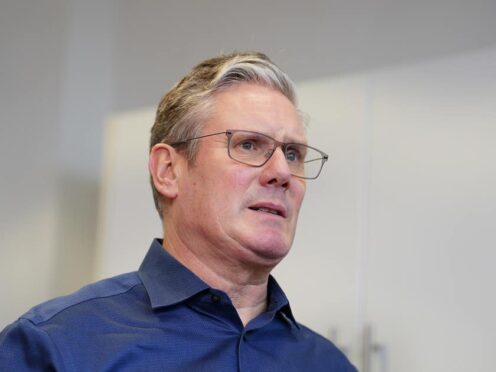It is “immoral” that working-class children are being denied the same opportunities to become Hollywood stars or musical icons as private school pupils, Labour leader Sir Keir Starmer has said.
He said “we are holding back masses of potential” because of a decline in arts subjects.
A Labour analysis of major film, TV and music awards showed that, although 94% of children go to a state school, just 60% of British actors, directors and musicians nominated in the last decade were state-educated.
The awards covered by Labour’s analysis included the main acting and directing categories at the Baftas and Oscars, and solo artists nominated for the Mercury Prize.

The Opposition pointed to figures from the Campaign for the Arts showing a 47% fall in arts subjects being taken at GCSE between 2010 and 2023.
Sir Keir said: “It is short-sighted and frankly immoral, to allow arts and culture to become the domain of a few privileged pupils.
“Britain is a world leader in music and film, but we are holding back masses of potential because the Conservatives’ creativity crisis is shutting kids out.”
The Labour leader played the flute, piano, violin and recorder at school.
“Growing up in a working-class household, the opportunity to learn an instrument gave me benefits far beyond the music,” he said.
“It gave me the confidence to kick on, and the drive to achieve.”
Sir Keir will use a school visit on Monday to highlight Labour’s plan to broaden the curriculum to ensure that children do not miss out on subjects such as music, art, design, sport and drama.
Sir Keir is also pushing Britain’s arts organisations to include more people from poorer backgrounds.

Sir Steve McQueen, director of the Oscar-winning 12 Years A Slave, said: “If we are talking about opportunity for young people, then the ability to express themselves imaginatively and creatively, and in their own way, is one of the greatest opportunities you could possibly give them.
“Culture and the arts are something this country is the best at, and they need to be nurtured and protected.”
TV mathematician Bobby Seagull said: “There’s sometimes a temptation to separate creative thinking from maths, but this couldn’t be further from the truth.
“Whether it’s problem-solving and deciphering complex patterns in music, improving speech and presentation skills in drama, or thinking outside the box in art, there are countless ways that creative subjects can make you a better mathematician.
“And it’s not just maths, many other subjects benefit from these skills too.
“Labour’s pledge to broaden the curriculum, boost teaching staff and make the arts available to everyone, is really exciting. It will greatly benefit the mathematicians of tomorrow.”
